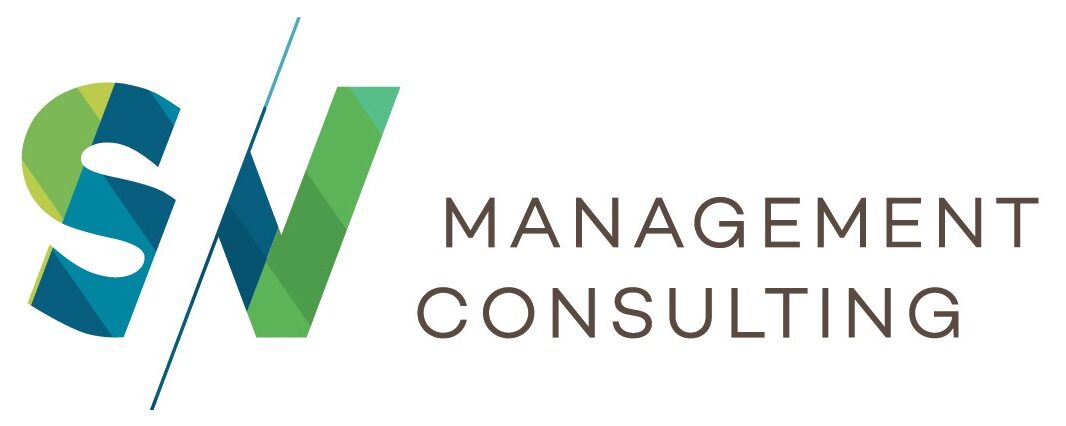
While a perpetually calm life is an appealing ideal, it’s often unrealistic—especially in the high-stress world of commercial real estate.
As someone who has grappled with anxiety and sought help to understand its effects, I’ve learned the value of self-improvement in building resilience. This journey has taught me that effective leadership and personal growth often require a dedicated effort to manage anxiety and cultivate self-awareness.
The good news for those of us who experience anxiety, whether consistent, occasional, or situational, is that we can learn to control our minds, understand our triggers, and find resources to improve our response and reduce symptoms.
We must remain vigilant about the effects of anxiety on ourselves and our teams. It’s crucial to recognize our personal triggers and periods of heightened stress and understand how they influence our leadership abilities, career trajectory, and personal aspirations.
In doing so, anxiety can serve as a motivating force.
Navigating Uncertainty: Key Stressors in the CRE Landscape
The Commercial Real Estate landscape is rife with challenges.
Persistent high interest rates, coupled with ongoing pressures to cut costs and retain key talent, have heightened anxiety industry wide. While retail and multifamily sectors show promise, the prevalence of negative narratives in social and mass media often amplifies feelings of uncertainty and stress.
Other key stressors include:
1. Market Volatility: Navigating unpredictable property values and investment risks.
2. Financing Challenges: Managing high interest rates, strict lending criteria, and complex debt structures.
3. Regulatory Compliance: Keeping up with changing laws, zoning regulations, and environmental standards.
4. Talent Retention: Attracting and retaining skilled professionals in a competitive job market.
5. Technology Adaptation: Integrating new PropTech solutions and managing cybersecurity risks.
6. Client Expectations: Meeting increasingly demanding investor and tenant requirements.
7. Work-Life Balance: Juggling high-stakes deals with personal and family commitments.
8. Economic Uncertainty: Anticipating and responding to broader economic shifts and their impact on CRE.
9. Competitive Pressure: Staying ahead in a rapidly evolving and intensely competitive industry.
10. Sustainability Demands: Addressing growing environmental concerns and implementing green building practices.
In CRE leadership,we must focus on understanding and managing the stressors that can trigger anxiety in our industry.
10 Strategies to Transform Anxiety into a Catalyst for Growth
By managing our own emotions, triggers, and symptoms, we not only build resilience but also foster empathy for team members who may be dealing with similar feelings. This understanding and support are crucial in team management. Through self-awareness and self-improvement, we can build empathy to support others in personal and professional development while driving cultural alignment and achieving sustainable organizational growth.
Here are 10 strategies to transform anxiety into a catalyst for growth:
1. Reframe Thoughts: Identify and reshape negative thought patterns to foster constructive thinking.
2. Set Achievable Goals: Establish realistic objectives to boost confidence and minimize future uncertainties.
3. Cultivate Empathy: Create a supportive environment for open expression of concerns and fears.
4. Enhance Problem-Solving: Develop strategies to address challenges directly, reducing anxiety-inducing uncertainties.
5. Build Support Networks: Develop strong professional and personal connections for ongoing encouragement and feedback.
6. Practice Mindfulness: Implement meditation techniques to enhance present-moment awareness and reduce stress.
7. Optimize Time Management: Learn techniques to balance responsibilities and manage stress effectively.
8. Master Breathing: Utilize controlled breathing exercises to alleviate physical anxiety symptoms.
9. Prioritize Physical Activity: Engage in regular exercise to naturally reduce anxiety through endorphin release.
10. Visualize Success: Use guided imagery to envision positive outcomes and build confidence in facing real-world challenges.
As a leadership and executive coach, focused on building leadership skills and resilient teams, I have seen how anxiety is not just an obstacle to overcome—it’s an opportunity for growth. By implementing these strategies and fostering a culture of adaptability and endurance, CRE leaders can transform personal challenges into organizational strengths.
The goal isn’t to eliminate anxiety entirely, but to harness its energy productively. As you navigate the complexities of market volatility, regulatory changes, and technological disruptions, your ability to manage stress and build resilience will set you apart as a leader.
I help executives and C-teams embrace this journey of self-improvement and empathy, and in doing so, they not only enhance their own CRE leadership capabilities but also create a more supportive, innovative, and successful organization. In the face of uncertainty, your resilience will be the cornerstone of sustainable growth and success in the ever-evolving CRE landscape.
I challenge you to choose one strategy from this list and commit to implementing it the next month. Please schedule a 30-minute consultation to learn more about CRE leadership and building resilience for yourself or your organization.


